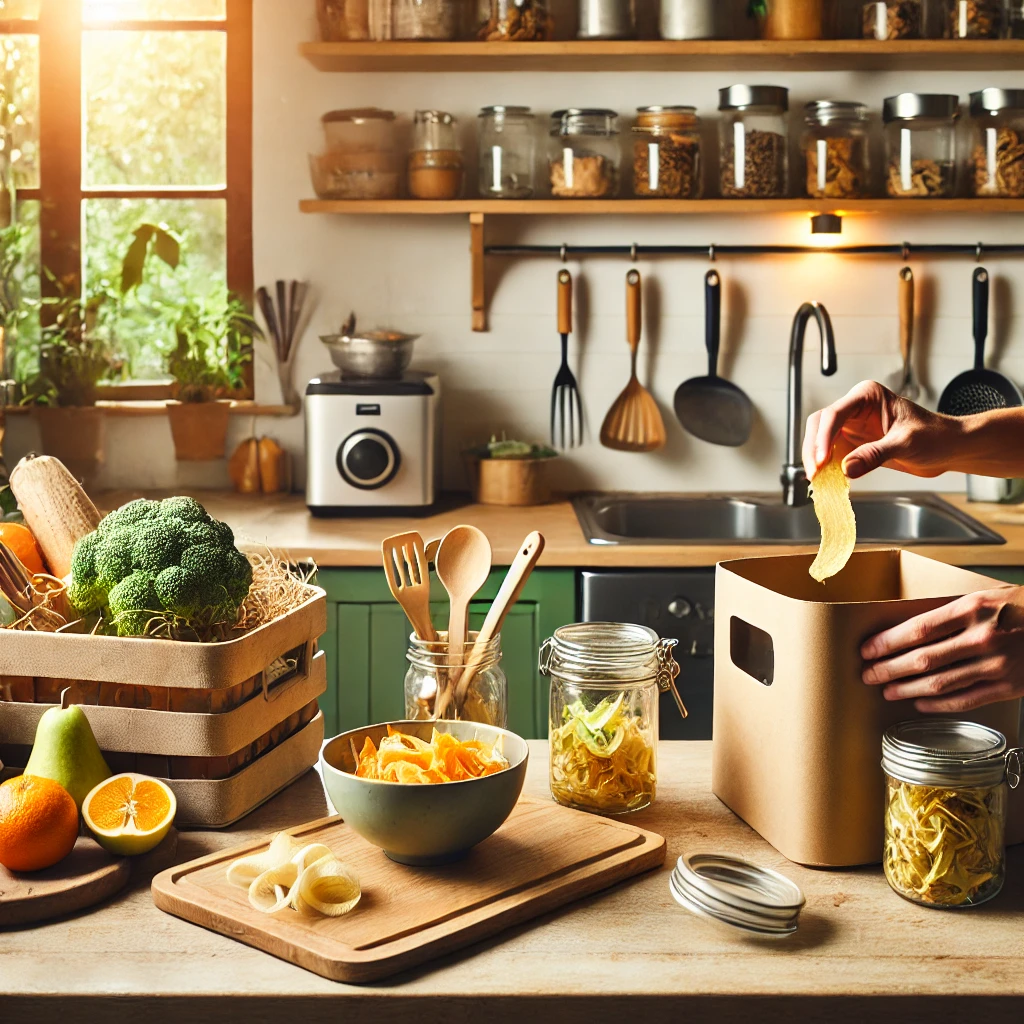
Zero-Waste Kitchen Tips: How to Cut Down on Food Waste
Want to make your kitchen more eco-friendly? Learn how to cut food waste, save money, and live sustainably with these easy, practical tips.
1. Why Reducing Food Waste Matters
Every year, millions of tons of food end up in landfills. Not only is this a waste of money, but it also contributes to climate change. By adopting a zero-waste mindset, you can help reduce greenhouse gas emissions and make a positive impact on the planet.
2. Plan Your Meals to Minimize Waste
Planning your meals in advance helps you buy only what you need, reducing the chance of food going bad. Plus, it saves you time and money! Use a meal planner, write a shopping list, and stick to it.
3. Store Food Properly
Use Airtight Containers
Keeping leftovers and fresh produce in airtight containers extends their shelf life. Glass containers are a great eco-friendly choice!
Freeze Perishables
Got too many fruits or veggies? Freeze them before they spoil! You can also freeze bread, herbs, and even dairy products like cheese and milk.
4. Compost Food Scraps
Not all food waste can be avoided, but composting helps keep organic matter out of landfills. Turn vegetable peels, coffee grounds, and eggshells into nutrient-rich compost for your garden.
5. Get Creative with Leftovers
Instead of throwing out leftovers, transform them into new meals! Last night's roasted veggies? Perfect for a frittata. Stale bread? Make croutons or bread pudding!
6. Buy in Bulk to Reduce Packaging Waste
Buying in bulk reduces plastic waste and saves money. Bring your own reusable containers when shopping for grains, nuts, and spices.
7. Choose Energy-Efficient Kitchen Appliances
Energy-efficient appliances, like Energy Star-rated refrigerators and induction cooktops, help you save electricity and reduce your carbon footprint. Plus, they lower your utility bills!
8. Use Renewable Energy in Your Kitchen
Want to go the extra mile? Power your kitchen with solar power for homes. It’s a long-term investment that reduces reliance on fossil fuels.
9. Grow Your Own Herbs and Vegetables
Growing your own food reduces packaging waste and ensures you always have fresh ingredients on hand. Start with easy-to-grow herbs like basil, mint, and parsley.
10. Be Mindful of Water Usage
Conserving water is just as important as reducing food waste. Install a low-flow faucet, use a dishwasher efficiently, and avoid running water unnecessarily.
11. Opt for Sustainable Kitchenware
Swap single-use plastic items for sustainable alternatives like bamboo utensils, reusable beeswax wraps, and glass jars.
12. Support Local and Organic Farmers
Buying from local farmers reduces carbon emissions from transportation and supports sustainable agriculture. Organic foods are better for your health and the environment.
13. Learn About the Top Green Technologies Shaping the Future
Stay informed about energy-efficient innovations and green technology reviews. Advances in food preservation and packaging can help make kitchens more sustainable.
14. Start Living a Zero-Waste Lifestyle
Embracing a zero-waste lifestyle means making small, consistent changes. Start with your kitchen, then expand to other areas like transportation and home energy use.
15. Final Thoughts
Reducing food waste isn’t just good for the planet—it’s good for your wallet too! By planning meals, using leftovers creatively, and embracing sustainable living tips, you can make a real difference.
FAQs
1. What are the benefits of using solar energy at home?
Solar energy lowers electricity bills, reduces carbon emissions, and provides a renewable power source for a sustainable future.
2. What are the best electric cars for an eco-friendly lifestyle?
Some of the best electric vehicles in 2025 include Tesla Model Y, Ford Mustang Mach-E, and Nissan Ariya for their efficiency and sustainability.
3. How can I make my home more energy-efficient?
Upgrade to energy-efficient appliances, use LED lighting, improve insulation, and consider smart thermostats to reduce energy waste.
4. What are the top green technologies shaping the future?
Some exciting green technology reviews include solar panels, electric vehicles, sustainable packaging, and water-saving innovations.
5. How do I start living sustainably?
Start with small steps like reducing waste, using renewable energy, supporting sustainable brands, and embracing eco-friendly habits in daily life.